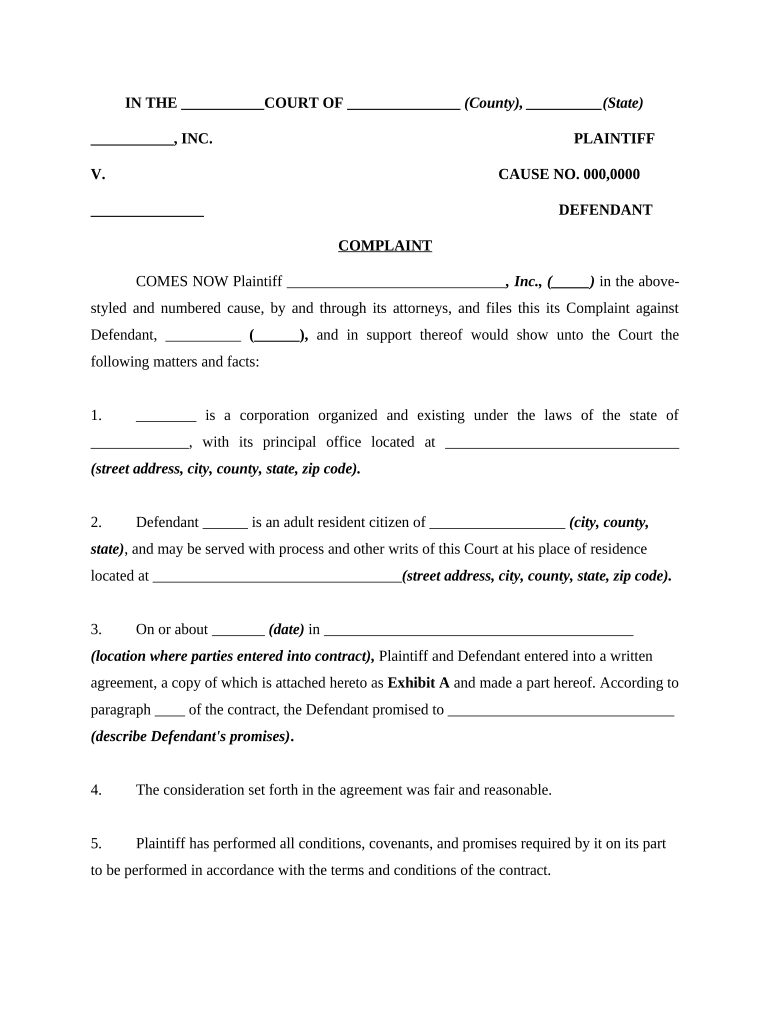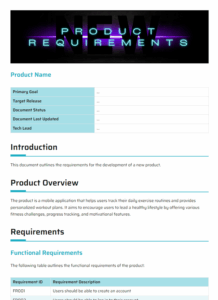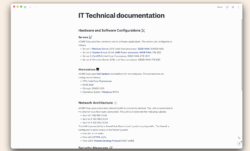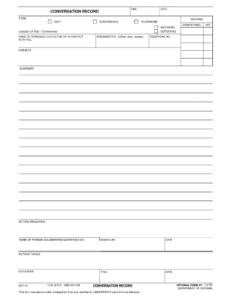Have you ever found yourself in a situation where someone didn’t uphold their end of a deal? It’s a frustrating experience, especially when that deal was a legally binding contract. When this happens, it might be time to consider taking formal action, and that usually starts with filing a complaint to officially notify the court and the other party about the alleged breach.
The thought of drafting legal documents can feel overwhelming, like stepping into a dense legal jungle without a map. That’s where understanding how to use a breach of contract complaint template can be incredibly helpful. It provides a structured starting point, guiding you through the essential information needed to articulate your case clearly and effectively, making the initial steps of legal recourse much more approachable.

Understanding the Basics of a Breach of Contract Claim
Before diving into a breach of contract complaint template, it’s crucial to grasp what a breach of contract truly means. At its core, a breach occurs when one party fails to fulfill their obligations as specified in a contract. This failure can manifest in various ways, from not completing work on time, delivering substandard goods, or simply refusing to pay. When such a failure happens, and it causes harm, the non-breaching party often has grounds to seek legal remedy.
For a contract to be enforceable, and thus capable of being breached, certain elements must typically be present. These usually include an offer, acceptance of that offer, consideration (something of value exchanged), and mutual intent to create a legal relationship. Without these foundational elements, proving a contract existed, let alone was broken, becomes challenging.
A breach isn’t always clear-cut. Sometimes, a “material breach” occurs, meaning a significant failure that defeats the main purpose of the contract. Other times, it might be a “minor breach,” where a party deviates slightly but still largely fulfills their obligations. Then there’s “anticipatory breach,” where one party indicates they won’t perform their duties before the performance is even due. Each type can have different legal implications for your claim.
Essential Components of Your Complaint
When you’re preparing to file a complaint, whether with the help of a breach of contract complaint template or from scratch, there are several key pieces of information you’ll need to include to ensure your document is legally sound and persuasive. Think of it as telling your story to the court in a very specific, organized manner.
Here’s a breakdown of what you’ll typically find and need to fill out:
- Identification of Parties: Clearly state who you are (the plaintiff) and who you are suing (the defendant), including their legal names and addresses.
- Jurisdiction and Venue: Explain why the court you’re filing in has the authority to hear your case and why it’s the appropriate location.
- Factual Allegations: This is where you narrate the events leading up to the breach. Be concise but thorough, laying out the timeline and specific actions or inactions.
- The Contract Itself: Describe the contract in detail, including its terms, the date it was formed, and attach a copy if available.
- Breach Allegations: Specifically state how the defendant breached the contract, referencing the particular clauses or obligations that were violated.
- Damages: Detail the financial or other harm you’ve suffered as a direct result of the breach. This is crucial for determining what compensation you seek.
- Prayer for Relief: Clearly state what you are asking the court to do – typically, an award of money (damages), specific performance, or other equitable remedies.
It’s vital to be as specific as possible in your complaint. Vague allegations can weaken your case and may lead to delays or even dismissal. The more detailed and factual your complaint, the stronger your foundation for future legal proceedings.
Navigating the Legal Landscape: When to Use a Template and When to Seek Help
A breach of contract complaint template can be an invaluable resource, especially for individuals or small businesses who are grappling with a contract dispute for the first time. It provides a framework that ensures you don’t miss any critical sections that legal complaints typically require, offering a sense of structure and confidence in an otherwise daunting process. Think of it as a guide that helps you organize your thoughts and present your case in a logically flowing manner, reflecting professional standards even if you’re representing yourself.
The primary benefit of using such a template is efficiency. It saves you the time and effort of figuring out the basic legal formatting and required sections from scratch. By providing pre-defined categories and prompts, a good template streamlines the initial drafting stage, allowing you to focus more on the specifics of your case rather than the procedural nuances of legal document creation. This can significantly reduce the stress associated with legal paperwork.
However, it’s equally important to understand the limitations of a generic breach of contract complaint template. While templates offer a great starting point, they are, by nature, generalized. They might not account for the unique laws of your specific state or jurisdiction, nor will they capture the intricate details or complexities of your particular contractual dispute. Legal situations are rarely one-size-fits-all, and a template cannot replace the tailored advice of a seasoned legal professional.
For more complex or high-stakes situations, relying solely on a template can be risky. If the financial implications are significant, if the contract terms are ambiguous, or if the opposing party has legal representation, it’s strongly advisable to consult with an attorney. A lawyer can not only help you customize a template to fit your exact needs and local laws but also provide strategic advice, negotiate on your behalf, and represent you effectively in court, ensuring all nuances of your case are properly addressed.
Understanding how to properly articulate a breach of contract claim is a crucial first step in seeking justice when a contractual agreement falls apart. Utilizing a well-structured breach of contract complaint template can provide a solid foundation for your legal journey, giving you a clear path forward in presenting your grievances to the court.
While these tools offer immense help in organizing your thoughts and ensuring all necessary elements are included, remember that every legal situation carries its own unique set of circumstances. Thinking carefully about the specifics of your case and considering professional legal advice will always be your strongest allies in navigating the complexities of contract law.



